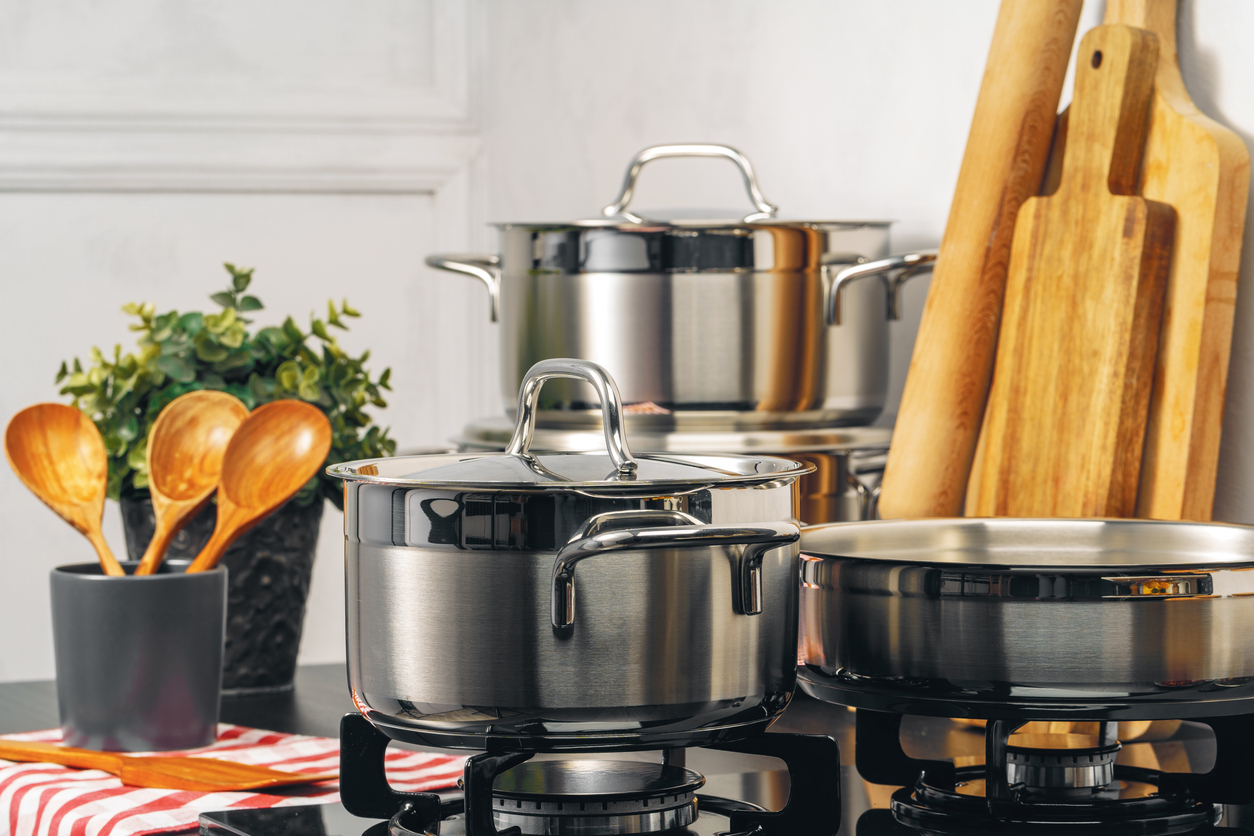With the rising cost of living, saving money at home has become more important than ever. Fortunately, many simple and effective ways exist to cut costs and reduce household expenses without sacrificing comfort or convenience. From energy savings to smarter shopping habits, here are ten practical strategies to help you save money at home.
1. Optimize energy usage
Energy bills can take a big chunk out of your monthly budget, but there are several ways to reduce these costs. Start by switching to energy-efficient appliances and light bulbs, such as LED lights, which use significantly less electricity than traditional incandescent bulbs. Additionally, consider installing a programmable thermostat to regulate your home’s temperature more efficiently. Set it to reduce heating or cooling when you’re not at home or during sleeping hours to save on utility bills.
Brigit tip: Unplug electronic devices and chargers when they’re not in use. Even when turned off, many devices continue to draw power, known as “phantom energy.” Using a power strip can make it easier to disconnect multiple devices at once.
2. Reduce water waste
Water bills can add up quickly, especially if you’re not mindful of your usage. Start by fixing any leaks around your home, such as dripping faucets or running toilets. Even a small leak can waste hundreds of gallons of water per month. Installing low-flow showerheads and faucets can also help reduce water usage without sacrificing water pressure.
Brigit tip: Consider shortening your showers and only running the dishwasher or washing machine with full loads. You can also collect rainwater in barrels for watering your garden, reducing the need for tap water.
3. Cook at home more often
Eating out frequently can quickly drain your wallet. Cooking at home is not only healthier but also more economical. Plan your meals for the week and create a shopping list to avoid impulse buys. Cooking in bulk and preparing meals ahead of time can save both money and time, allowing you to freeze portions for later use.
Brigit tip: Try to limit dining out to special occasions, and make it a habit to bring homemade lunches to work or school. This simple switch can save you hundreds of dollars each year.
4. Cut down on subscriptions and memberships
Many households subscribe to multiple services, from streaming platforms to magazines, gyms, and subscription boxes. Review all your subscriptions and assess which ones you actually use regularly. Cancel any that you don’t need or rarely use.
Brigit tip: Share subscription services like Netflix or Spotify with family members or friends. Most streaming platforms allow multiple profiles under one account, so you can split the cost and still enjoy your favorite shows and music.
5. Shop smarter for groceries
Grocery shopping is a significant expense for most households, but there are several ways to save money at the supermarket. Start by making a list before you shop to avoid impulse purchases. Use coupons, take advantage of sales, and consider buying in bulk for items you use frequently. Opt for store brands instead of name brands, as they are often of similar quality but at a lower price.
Brigit tip: Try to shop less frequently to avoid extra trips to the store, which often lead to unplanned purchases. Meal planning can help you shop more efficiently and reduce food waste.
6. DIY cleaning supplies and personal care products
Many store-bought cleaning supplies and personal care products are costly and contain harsh chemicals. Consider making your own using simple, natural ingredients like vinegar, baking soda, and essential oils. These homemade alternatives are not only cheaper but also safer for your home and family.
Brigit tip: Research online for easy DIY recipes for household cleaners, soaps, and skincare products. You’ll find that many of these solutions are just as effective as their store-bought counterparts and cost a fraction of the price.
7. Practice preventive maintenance
Regular maintenance can prevent costly repairs down the line. This includes everything from servicing your HVAC system to cleaning gutters and checking for leaks. By addressing minor issues early, you can avoid more extensive (and expensive) repairs later on.
Brigit tip: Create a home maintenance checklist and schedule routine checks for appliances, plumbing, and heating and cooling systems. Regular maintenance extends the life of your home’s systems and saves you money in the long run.
8. Reduce, reuse, and recycle
Adopting a sustainable lifestyle not only helps the environment but also saves you money. Look for ways to reduce waste by reusing and recycling items around the home. For example, repurpose glass jars as storage containers, use old clothes as cleaning rags, and donate or sell items you no longer need.
Brigit tip: Consider buying second-hand items whenever possible. Thrift stores, garage sales, and online marketplaces offer a wide range of goods at significantly lower prices than buying new.
9. Be smart with home heating and cooling
Heating and cooling costs can be a major expense, especially during extreme weather months. To reduce these costs, make sure your home is properly insulated and sealed. Use weather stripping around doors and windows to prevent drafts, and consider installing thermal curtains to keep heat in during the winter and out during the summer.
Brigit tip: Use ceiling fans to help circulate air, making your home feel cooler in the summer and warmer in the winter. In the colder months, open curtains on sunny days to let in natural heat and close them at night to retain warmth and save money.
10. Lean in to free entertainment
Entertainment doesn’t have to be expensive. Look for free or low-cost activities in your community, such as parks, museums, and local events. Many cities offer free concerts, movie nights, and cultural festivals. You can also find a wealth of free online resources, from virtual tours and educational programs to streaming services and e-books from your local library.
Brigit tip: Host a game night or movie marathon at home with friends and family instead of going out. Not only is it cheaper, but it’s also a great way to create lasting memories.


